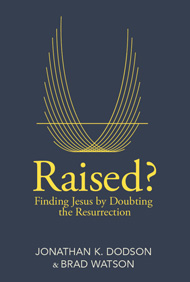In his new book, Prayer: Experiencing Awe and Intimacy with God (if that subtitle doesn’t hook you, I don’t know what will!), Tim Keller outlines a pattern for prayer. He suggests five elements to form a framework for prayer: evocation, meditation, Word prayer, free prayer, contemplation (240-262).
Keller is not saying this framework should be written in stone or practiced woodenly, but that does bring together necessary elements for a thriving relationship with God. If you’re a church leader, it would be wise to assess which of these elements need attention, not only in your own life but also in general in your own community.
I thought I’d share a few reflections on prayer that were triggered by this framework.
Prayers That Go for a Walk
A few years ago, I began praying the Lord’s Prayer every morning, personalizing each phrase. It has been wonderfully instructive. For instance, opening with “Our Father” has helped me ground prayer in relationship and not request. When my opening address to God is as “Father,” I am immediately reminded that I am “son,” his son. I haven’t earned my way into this relationship, nor can I disqualify myself from being heard by him.
However, I noticed over time, despite this rich sonship, I began to feel badly if I didn’t get all the way through Jesus’ pattern prayer. This would make me want to pray longer or, more likely, pray quicker. Keller reminds us that contemplation is a time to sense God. Drawing on Luther, he notes that Luther described it as a time to “let his thoughts go for a walk” (251). When one thought stood out, Luther felt free to follow the Holy Spirit into it, and that here
the Holy Spirit himself is preaching and one word of his sermon is better than thousands of our own prayers…
This insight has brought me greater freedom when praying the Lord’s Prayer, but more importantly, encouraged me to follow the Holy Spirit more, to participate with him in prayer, and in freedom follow his leading in prayer. When our prayer is “on the clock,” it can be very difficult to get lost in God’s truth, goodness, and beauty. Allow yourself the freedom and joy of prayers that go for a walk.
Pray the Text
Before moving to free form prayer, Luther often found something in the biblical text as a basis for praising repenting, or resolving. People often struggle to know what to pray or what God’s will is. When we are moved to prayer with God’s word, we can have full confidence that we are praying his will (properly interpreted). Textual prayers are answered prayers. God loves to keep his word. When we “pray the text,” we not only gain confidence but also power. The Spirit works through God’s revealed word to accomplish his will in and through us.
Not too long ago I spent some time discussing public prayer with a group of elder candidates. Among other things, I encouraged them to pray the Word. It is important that our prayers are shaped by God’s word, and that God’s word shapes our church. I encouraged them to pray the Word into our church. If small groups and discipleship groups grasped this, it would unleash greater power in prayer. Why? Because God keeps his word, and delights to reveal his will through it. We are, after all, a Word-shaped people.
Experience What You Have
In Christ, we all have things–blessings–that we don’t experience (166-67). Prayer affords us the opportunity to experience those blessings, to encounter our theology so to speak. Keller points out that Paul frequently prays for churches to experience things they already have: “to grasp how wide and long and high and deep is the love of Christ” or “to know the love that surpasses knowledge” (see Eph. 3:14-19). There is knowing, and there is knowing. Prayer brings us into an intimate knowledge of God. Keller writes:
It is possible for Christians to live their lives with a high degree of phoniness, hollowness, and inauthenticity. The reason is because they have failed to move that truth into their hearts and therefore it has not actually changed who they are and how they live.
Prayer bridges the gap between knowledge and knowing. When we humbly seek God, and ask that we would experience what we already have, we begin to change, to encounter, to see the unseeable beauties of God and be floored. There are tremendous truths that need to be experienced such as: “fully loved, fully accepted” or “forgiven and free.” Ask God to allow you to experience what you already have in Christ Jesus.
—
For a brief time you can get Prayer at Westminster Bookstore cheaper than Amazon, plus your purchase supports a kingdom ministry instead of the Amazon behemoth. They also have one of my favorite books on sanctification on sale for 3.99.

